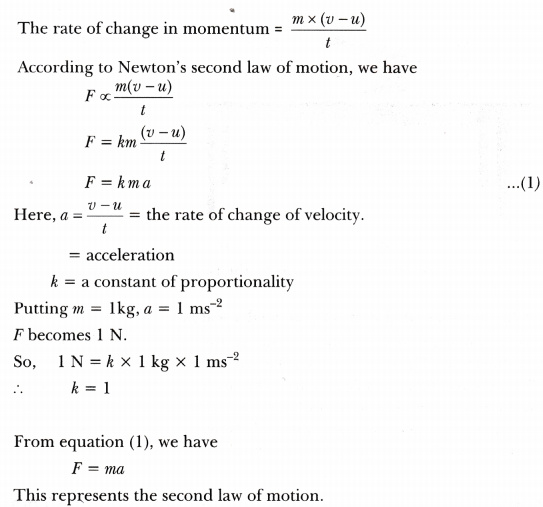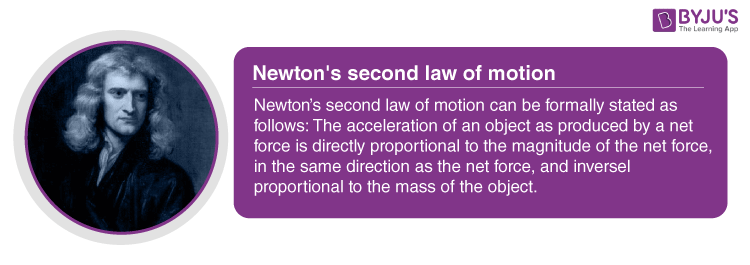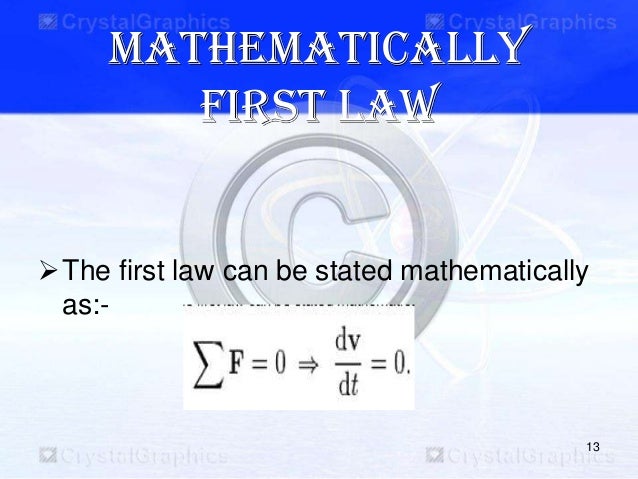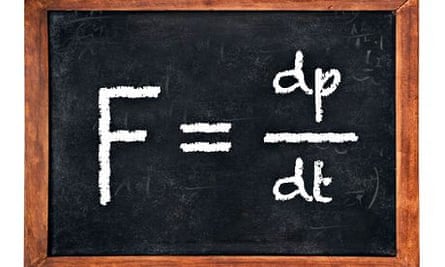Derive relation f ma from newton 2nd law of motion let us derive the relation of force f ma from newton s second law.
State newton s 2nd law of motion and derive its mathematical expression.
The mathematical expression is given by.
Newton s laws of motion are three physical laws that together laid the foundation for classical mechanics they describe the relationship between a body and the forces acting upon it and its motion in response to those forces.
The second law of motion is used to validate this phenomenon.
According to the newton s 2 nd law of motion the rate of change of linear momentum of a body is directly proportional to the applied external force and in the direction of force.
Derivation of conservation of momentum.
Derivation of newton s first law of motion from newton s second law of motion newton s first law states that a body stays at rest if it is at rest and moves with a constant velocity if already moving until a net force is applied to it.
F ma or f m v u t or ft mv mu that is when f 0 v u for whatever time t.
In this section we shall learn about the formulation of the second law of motion.
With these examples we can conclude that the impact produced by an object depends on its mass and velocity i e its momentum and the time rate at which the change in momentum is occurring.
Newton s second law states that the net force applied on the body is equal to the rate of change in its momentum.
For a constant mass force equals.
The time of contact between two particles is given as t.
In other words the state of motion of a body changes only on application of a net non zero force.
More precisely the first law defines the force qualitatively the second law offers a quantitative measure of the force and the third asserts that a single isolated.
Consider two colliding particles a and b whose masses are m1 and m2 with initial and final velocities as u 1 and v 1 of a and u 2 and v 2 of b.
According to nasa this law states force is equal to the change in momentum per change in time.
Newton s third law of motion states that every action has equal and opposite reaction.
The law of conservation of momentum is an important consequence of newton s third law of motion.



























